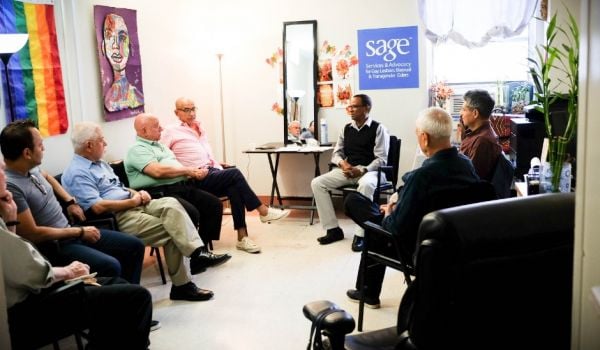Each year, U.S. cities lose an estimated 36 million trees to development, disease and old age, many of which ultimately end up in landfills. Losing these urban trees – known to help cool their neighborhoods, lower carbon emissions and improve mental health, among other benefits – costs an estimated $96 million annually.
In Philadelphia, a partnership is giving the City of Brotherly Love’s fallen trees new life. Philadelphia Parks & Rec joined forces with Cambium Carbon, a Washington, D.C.-based startup that repurposes waste wood, and PowerCorpsPHL, a local nonprofit that creates job opportunities for unemployed and under-employed 18- to 30-year-olds, to launch the Reforestation Hub in late May.
Rather than sending trees straight to the landfill or the city’s organic recycling center to simply become mulch or wood chips, the Reforestation Hub (which is co-located in the city’s organic recycling center) will salvage as many trees as it can. As many as possible will be turned into Cambium’s Carbon Smart Wood, which stores 5.23 pounds of carbon in each board foot, before going on to become everything from desks and tables to fences and even decking and siding.
Fifteen percent of sales that come out of the hub will be donated to Tree Philly at the end of each year to support tree planting and maintenance across the city.
While the hub formally launched only recently, in the year and a half that it’s taken to get the infrastructure in place, it has already diverted 542 logs to create 28,000 board feet of Carbon Smart Wood alone. But that’s not all. “One of our very first projects was creating a set of tree stakes for the Pennsylvania Horticultural Society to offer the support saplings need to grow,” says Marisa Repka, co-founder and head of impact at Cambium.

(Photo courtesy of the Reforestation Hub)
The process starts with tagging each log that can be salvaged for milled material in Cambium’s software called Traece, which works by attaching a QR code to each log. “We try to track the full chain of custody,” Repka adds. Across all of Cambium’s work, the software lets the company know where each board originated, who processed it, and how much carbon has been sequestered based on the tree species.
“The goal is to maximize Carbon Smart Wood lumber output in general,” she says. “We’re really trying to prove out this kind of sales engine—showing that, by upcycling these natural resources, we can create a revenue stream that supports re-planting and critical capacity for canopy maintenance and growth.”
In Philly, the sales engine comes with unique workforce opportunities, too. That’s thanks to its collaboration with PowerCorpsPHL, an AmeriCorps program that engages about 250 young people each year.
“The seed of PowerCorps is really looking at workforce development that furthers both individual and community wealth and success, but also provides a public benefit around sustainability, climate resiliency and healthier neighborhoods,” explains Julia Hillengas, co-founder and executive director of PowerCorpsPHL. “Since the beginning, we’ve worked very closely with Philadelphia Parks & Rec, our water department, and other city departments to further their sustainability plans [like] the Green City Clean Waters plan.”
Hillengas’ organization pays members a minimum of $15 an hour for their time, deploying them to add capacity to city programs that might otherwise be unstaffed or under-staffed. “We’re often there to sort of help pilot and test things,” like they did with the Reforestation Hub.
Reforestation Hub started with three full-time PowerCorps workers for the first year, but the goal is to eventually add three more full-time staff to the mix. “Our staff is the core staff that run the daily operations at the Reforestation Hub, working very closely with Cambium on tagging the inventory into their Traece system,” and working to identify buyers for the products that come out of it, Hillengas says.
Naturally, the training that takes place at the Reforestation Hub centers on technical training for milling that follows PowerCorps’ close, one-to-one or up to one-to-three training structure. “It’s a really close mentorship, on-the-job kind of learning,” Hillengas says. “Our first graduate who came [out of the Reforestation Hub] went into the [city’s] water department as a safety technician really just based on his experience and number of hours of practice,” which can total around 2,000 hours.
As it works to divert tree waste and create carbon-negative wood, the Reforestation Hub is helping PowerCorpsPHL achieve its larger mission.
“Our goal is to connect young people who have a lot of talent that hasn’t been tapped yet,” Hillengas adds. “We give them the support they need to figure out where they want to go, what they want their future to look like, pay them for their time, and connect them to longer-term economic opportunities.”

Cinnamon Janzer is a freelance journalist based in Minneapolis. Her work has appeared in National Geographic, U.S. News & World Report, Rewire.news, and more. She holds an MA in Social Design, with a specialization in intervention design, from the Maryland Institute College of Art and a BA in Cultural Anthropology and Fine Art from the University of Minnesota, Twin Cities.
Follow Cinnamon .(JavaScript must be enabled to view this email address)

















Add to the Discussion
Next City sustaining members can comment on our stories. Keep the discussion going! Join our community of engaged members by donating today.
Already a sustaining member? Login here.